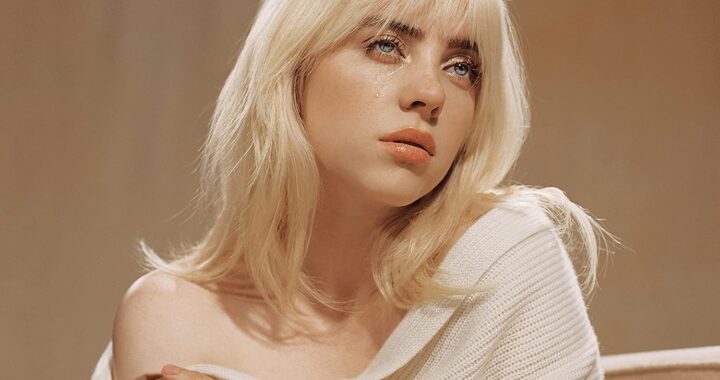Billie Eilish sings with a voice that could break at any moment. Yet, she claims to be Happier Than Ever, sarcastically, of course. On the cover photo of her eponymous album, she looks anything but happy. After all, she’s only human. Twenty years old.
During the COVID lockdown, what she and many others lacked was oxytocin, a hormone that intensifies social contacts. She named a song after it. “Can’t take it back once it’s been set in motion. You know I need you for the oxytocin.”
Eilish has always had difficulty connecting with others, especially with strangers. New friendships or potential relationships are first viewed with skepticism, and then she takes it from there. Some of this distrust stems from the burden of her immense fame and something from her past. “Wasn’t my decision to be abused,” she sings. In her case, her boundaries were crossed several times. Names are not mentioned, but “I’ve had some trauma, did things I didn’t wanna – was too afraid to tell ya, but now, I think it’s time.”
Despite her past and fame (she has more than 100 million followers on Instagram), she does try to make connections. Recently, she had a rather nice guy over at her place. Just to be safe, she had him sign a non-disclosure agreement (NDA). However, she jokingly shouted after him, “Do you think I’ll show up in a limousine? No, that money went into my security.”
Such an album that bursts with self-reflection doesn’t contain just music. It’s more like capturing and holding onto a mood. Miles Davis called it “directions in music.” In A Silent Way is his self-reflection. On the album cover, he looks slightly upward, just like Eilish. It’s not about playing music, but what then? It’s about gripping the listener with a cluster of sounds. Embracing them with ambiance, with atmosphere, with emotion. Creating something intimate between the artist and the listener. In silence, almost unnoticed.
The conversational song Not My Responsibility bears resemblance to the work of Laurie Anderson. “I am rarely where I think I am. It’s a bit spooky”, the performance artist once claimed. Responsible for the subdued beats and electronic atmospheric sounds is not the singer herself but her brother, Finneas O’Connell. Everything happens here in a restrained manner, with moderation and balance. The ‘setting’ of one song seamlessly flows into the next. A few times an acoustic guitar appears, ten seconds later an electric guitar rips into an intro, and somewhere in the background, deeply tucked away in the mix, we hear Eilish screaming briefly. All these are details. With her delicate voice, she holds everything together. There is a moment of euphoria in the title song, by way of discharge.
Precisely, it’s one of those albums that truly ‘works’ when you listen to it in its entirety. Especially late at night when the world is slowly shutting down. With Eilish, the beats don’t invite you to dance but rather guide you inward, not towards a nightclub but towards the living room where you sit with the curtains drawn and the lights dimmed. The one-hour playtime is not bothersome but necessary to gradually immerse yourself in the songs that appear to be songs but are actually shadows that ‘accompany’ you. This is not your typical daytime music.
That hour passes by before you even realize it because you also fade away a bit. However, disappearing gives way to something else, to a sensation that is barely perceptible. A captivating force that subtly and surreptitiously takes its course. Disappearing from your own life, from the daily grind, the maze, the chaos. Who wouldn’t want that? To be happier than ever, even if only for an hour. Together with Billie Eilish.

